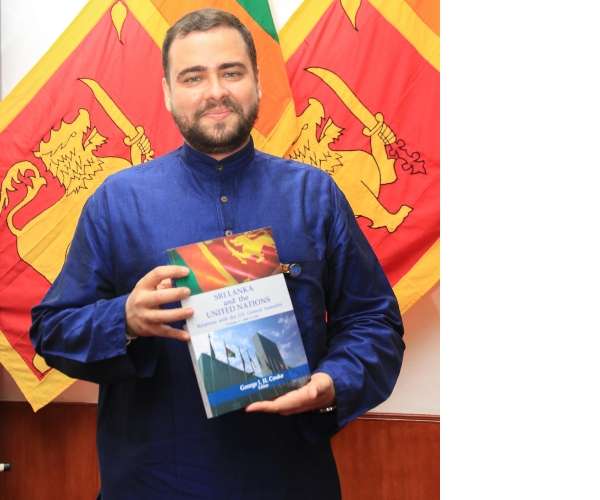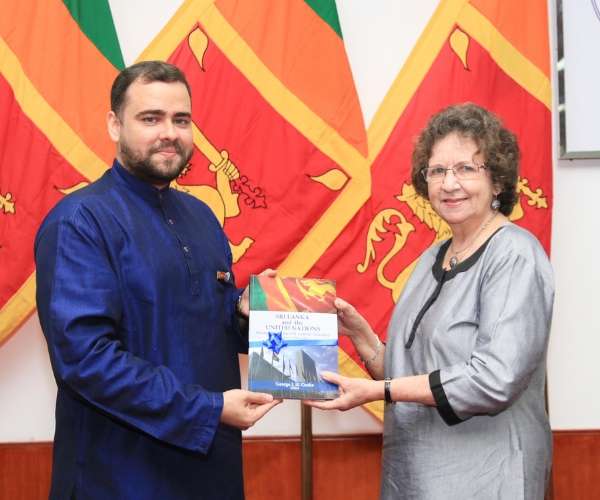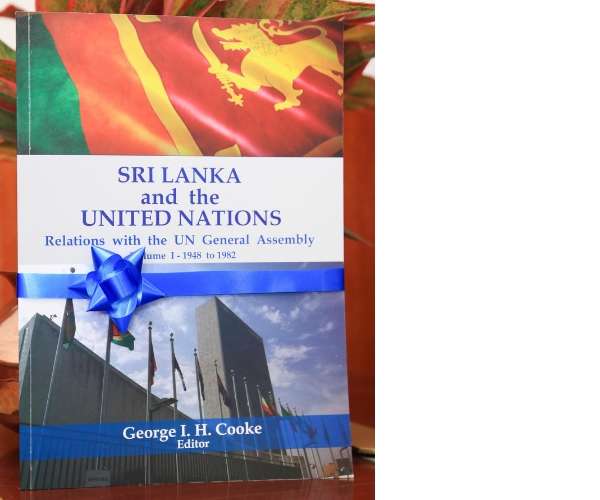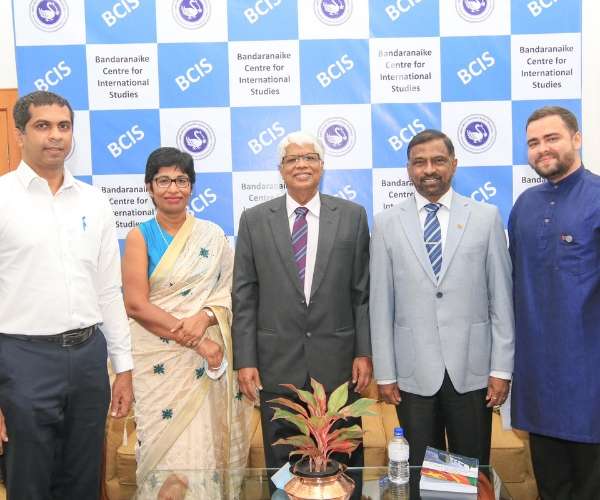
Jan 06 2021.
views 842Today on the buzz I speak to the very talented George Cooke, the Deputy Director of Bandaranaike Center of International Studies. George has worked on an amazing book highlighting the 50th anniversary of Sri Lanka’s admission to the UN. Today, I speak to him on Vol 1 of the book and more.

Tell me about the book, and what made you work on this project?
The idea for the book came out of my postgraduate research back in 2005 when I focused then on the 50th anniversary of Sri Lanka’s admission to the UN. 2020 was an important year in many ways for the field of International Relations. It marked the century of multilateralism, the 75th anniversary of the United Nations, and 65 years since Sri Lanka gained admission into the UN. The compilation of a publication containing documents and speeches highlighting Sri Lanka and the UN has been a long-felt need, as they are crucial elements for any researcher. Serving as primary data from which much could be elucidated and analysed, these documents and speeches comprise the fresh data and hitherto unexplored areas that researchers are often searching for.
Especially since it helps understand that much better the information that already exists. This book serves as a resource base for research into multilateralism and the role that Sri Lanka has played in this vital arena, in and through the United Nations. The main emphasis of this book is on the UN General Assembly and Sri Lanka’s engagement therein. It provides a window into a bygone era in which much occurred and from which much can be learnt.
This book is based on a lot of research and planning, how was it to find the information?
If you are passionate about what you do, the work you do is not hard, it is fascinating. This publication involved a lot of work, but more importantly, it has been a massive learning process whereby my own horizons were opened, as I delved deep into the documents and speeches and began to gain a wider understanding of the degree of engagement of our island-nation with the world. 2020 was a particularly challenging year, but challenges are to be met and overcome. The launch of the first volume on the 65th anniversary of Sri Lanka’s admission to the UN itself is testimony to the fact that goals need to be set, strategies drawn up and executed! If you really want to do something, you can!

Tell me about the 65th anniversary of the UN in Sri Lanka, and how important is this relationship for us?
The interaction of Sri Lanka with the international community is one of the most significant aspects of this country’s past, its policies, its governance and its future. This might be another milestone with many behind us and many ahead, but the importance of the anniversary is the opportunity it provides for Sri Lanka to take stock of the relationship; highlight areas that are not focused on sufficiently; address areas that require attention; and strategize for the future. Multilateralism is here to stay, at least for the foreseeable future. It is vital that Sri Lanka’s engagement with the UN is understood in the greater context of its beneficial nature over the frequently identified difficulties that have been experienced. The UN comprises a massive system of agencies and organisations. Sri Lanka enjoys a cordial, harmonious and engagement-friendly relationship with many of these entities and the time is ripe to focus on such relations and enhance the capacity stemming from them.
Many who spoke on the day of the launch, touched on how hard it might have been for a single person to accomplish, tell us about the process?
It requires commitment and discipline. Whilst juggling time is the greatest challenge, it is deeply interesting work and as a result, the difficulty of the process gets submerged to some extent. From collecting the documents and speeches to the writing of the narrative for each chapter, the layout, and the finalization of the book, it definitely requires time and concentration but the effort is fully worth it when researchers and those interested in understanding the past appreciate the work done and use it for further research. It is aimed at building awareness, at educating and informing, and if such work is going to be done by individuals, then let’s do it!

When can we hope to see the second volume of this publication?
If all goes according to plan it will be out in the first half of this year. That is the target!
What are you currently working on?
A lot! My PhD is the main focus at the moment! The second volume of this publication is also due, plus some other new areas later this year.
As someone who has worked in the foreign policy arena - how is the country handling Covid19?
A disciplined approach remains most vital from all stakeholders, especially us as citizens. The lessons we can learn from elsewhere are numerous. Firstly, international standards are vital. We need to know that which is required and formulate policies at the national level in accordance with international standards. Secondly, we need to study national models in other countries and thereby fathom what has already been done, what has gone wrong and how they are preparing themselves for future strains of the virus. Thirdly, it is up to us to draw up our own indigenous, effective plans and processes, which would safeguard the health security of all Sri Lankans.

What other areas would you like to move into when you pen the next book?
Foreign policy and diplomacy remain the main areas I’m passionate about, but there is a lot more within these areas that require in-depth reflection. Sri Lanka engaged widely with the world for centuries however we often lack understanding of this pivotal role, the potential of the island and the impact it can have with proper strategizing. A lot more research is required in this area and it remains a passion to build awareness and generate dialogue on such topical issues. The next volume will cover relations with the UN General Assembly from 1983 to 2020. The two volumes bear ample testimony to changing times. Whilst Sri Lanka took on the world and global issues prior to 1982, the scenario changes rapidly thereafter and the country has been forced, at times, to seek patience, time and assistance, owing to several factors. It’s crucial to read both volumes to understand how these changes occur.
0 Comments